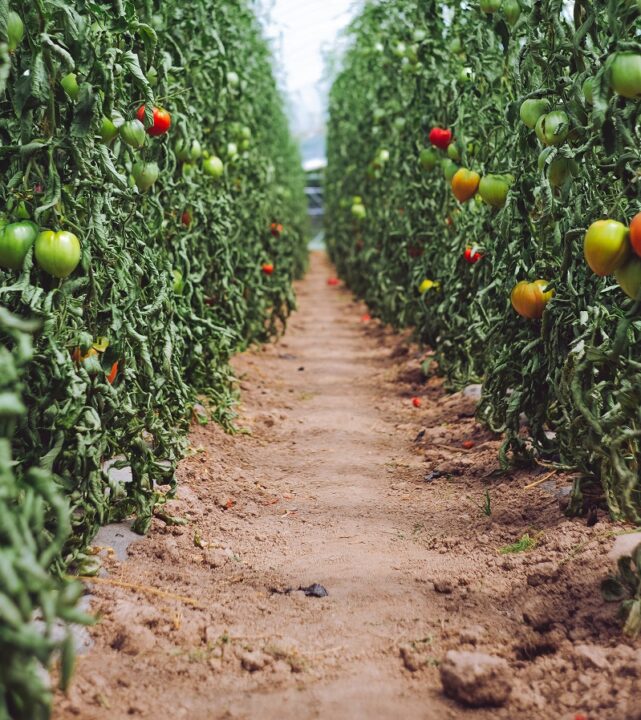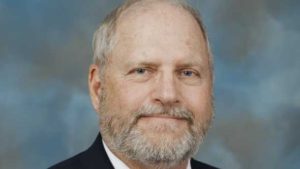Jack Payne Reflects on Service to Florida Agriculture
After a decade serving as the Senior Vice President of UF/IFAS, Jack Payne is set to retire this month.
We asked him about his time there and what he expects for the future.
What are some of the biggest accomplishments made by UF/IFAS during your tenure?
Payne: The great people we’ve recruited. For example, we expanded what in my opinion was already the nation’s leading university plant-breeding team. We were able to hire half a dozen faculty members skilled in genomics and in the use of tools like CRISPR. They have contributed to the team’s release of 271 cultivars in the past decade.
We also built a honey bee lab, a beef-teaching unit, an Extension professional development center, a learning center in our teaching forest, and numerous labs and graduate student dormitories at our research and education centers.
UF/IFAS research achieved a single-year grant funding record of $166 million. The UF/IFAS College of Agricultural and Life Sciences enrollment increased to a record high of more than 6,000 students.
What are some of your fondest memories personal/professional during your time with UF/IFAS?
Payne: It was very meaningful to me to be selected to deliver the keynote address at the land-grant sesquicentennial celebration on the National Mall in Washington, D.C. I thought, here I am, first in my family to go to college, now holding the stage before some of the most distinguished leaders in the nation in higher education. The land-grant system gave me, just like tens of thousands of others over the past 150 years, incredible opportunity.
Even better than that, though, was seeing others succeed. I am inspired by faculty such as Nian Wang knocking out canker in grapefruit, Vance Whitaker developing incredibly tasty strawberries, and Sanjay Shukla boosting yields and reducing inputs just by changing the dimensions of planting beds.
I enjoyed a great fishing trip with then-CEO of HM.CLAUSE Matthew Johnston, Florida Farm Bureau President John Hoblick, and Florida agriculture leader Bernie Hamel. The fishing was terrific, and so was the campfire conversation during which we had the time to really unpack how to feed the world.
How is UF/IFAS positioned for the future?
Payne: This is a turnkey operation for my successor, Scott Angle. He will undoubtedly find ways to improve, but he inherits an academic agricultural science operation that I would argue is the nation’s best.
We recently positioned ourselves for future scientific breakthroughs by holding an Emerging Agricultural Enterprises Summit and subsequently awarded mini grants to the most promising follow-up research proposals. This is how we’ll identify economically viable options for growers looking to diversify or to get out of the commodity they’re in now if that’s not working. We’re assessing the potential profitability of everything from hops and hemp to oysters, vanilla, turmeric, blackberries — the list goes on. We’re taking a lot of shots on goal and mitigating risk with science-based recommendations so growers can be more confident with new crops.
How has COVID-19 impacted the university and what is the go-forward plan?
Payne: First, it sent the students home and forced us to convert to online-only instruction mid-semester, which we did successfully in less than a week. Our spring graduates showed great resilience and were celebrated online. It slowed (but did not stop) research. We’re already looking ahead to not only ramp up but expand research efforts. Extension agents have been delivering many of their workshops via Zoom and social media and have actually expanded their reach and support of Floridians.
The go-forward plan is in development and is a collaborative effort across the university, led by UF Health to build a confident return to a safer campus and facilities. As of the time of this interview, we have seven task forces at the university planning how to bring everyone back safely to work.
What’s next up for you in retirement?
Payne: I remain strongly interested in three topics: climate change, food security, and preserving biodiversity. In this next phase of my life, I expect to be involved in a number of ways in these three areas.
Anything else you would like to add?
Payne: Yes. Thank you to the growers who feed Florida and the world. We at UF/IFAS treasure our partnership with them. They help fund research, they lend us land for experiments, they mentor our students, and they give us feedback on how we can best serve the needs of Florida agriculture.










